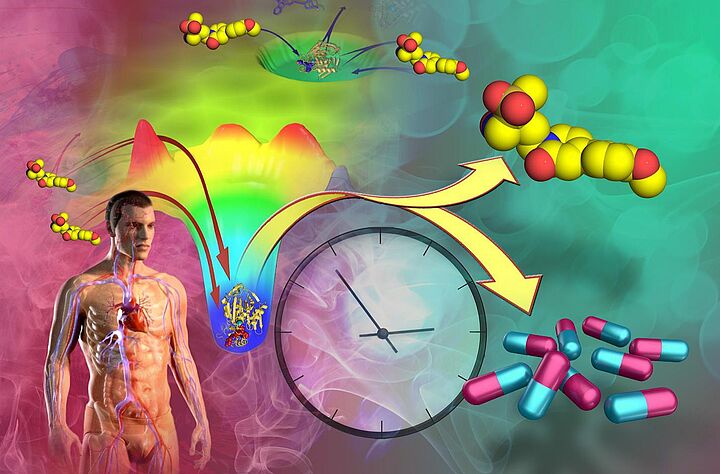Donnerstag, 08. Februar 2018, 17:00 - 18:00 iCal
Guest Lecture by Prof. Peter TONGE (Stony Brook)
Improving the Prediction of In vivo Drug Activity
UZA 2, Hörsaal 5 (Lecture Hall 5)
Althanstraße 14, Pharmaziegebäude, 1090 Wien
Lecture
The Doctoral Program ION CHANNELS AND TRANSPORTERS AS MOLECULAR DRUG TARGETS („MolTag“) is pleased to invite you to the following lecture
Improving the Prediction of In vivo Drug Activity
by Prof.Dr. Peter TONGE
Institute for Chemical Biology & Drug Discovery, Depts of Chemistry and Radiology, Stony Brook University, www.stonybrook.edu/commcms/chemistry/faculty/tonge.peter.html
on: Thursday, February 8th, 2018, 17:00 Uhr
at: UZA 2, Althanstr. 14, 1090 Vienna, LECTURE HALL 5
Biosketch - Dr. Tonge is a Professor of Chemistry and of Radiology (by courtesy) at Stony Brook University, where he is the co-Director of the NIH-funded T32 Chemical Biology Training Program, and the Director of the Biomolecular Imaging Faculty Cluster. He is also an Associate Editor for ACS Infectious Diseases. Dr. Tonge earned his BSc and PhD degrees in Biochemistry from Birmingham University, UK, and was a SERC/NATO post-doctoral fellow in the Division of Biological Sciences at the National Research Council of Canada (NRCC). After positions as a Research Associate and Research Officer at NRCC, he was a Staff Investigator at the Picower Medical Research Institute before joining Stony Brook University. Dr. Tonge's research program combines kinetic, structural, synthetic, computational and biophysical approaches, including ultrafast spectroscopy, to develop inhibitors of enzyme drug targets, and understand the mechanism of photoreceptors and optogenetic devices. A primary interest of his program is to develop enzyme inhibitors that have extended target engagement, which should enable dosing frequency and exposure to be reduced, resulting in decreased side effects and increased compliance. This is aided by the development of PK/PD models that integrate drug-target kinetics into the prediction of drug activity in humans, and the use of positron emission tomography to non-invasively image drug biodistribution.
Abstract: Time-dependent enzyme inhibitors are of particular interest in drug discovery programs since the rate of complex dissociation (koff) can be slower than the time scale of in vivo drug metabolism and elimination, leading to sustained target occupancy, and thus enabling dosing frequency and exposure to be reduced. We have developed a mechanistic PK/PD model that enables the kinetic parameters for time-dependent target engagement to be used to predict in vivo drug efficacy. To inform and interrogate the PK/PD model, we are developing compounds with altered residence times on their targets and quantifying the molecular factors that modulate the coupling of time-dependent enzyme inhibition to prolonged drug activity following compound washout. This analysis provides direct insight into target vulnerability. Data on three systems will be discussed including reversible inhibitors of two antibacterial targets, and a covalent inhibitor of Bruton’s tyrosine kinase (Btk), a target for treating diseases stemming from B cell dysregulation. The ability to accurately quantify target engagement as a function of time and drug concentration is expected to dramatically improve the prediction of in vivo drug activity across all therapeutic areas. pubs.acs.org/doi/pdf/10.1021/acschemneuro.7b00185
Contact: Doctoral Program MolTag, Dept. of Pharmacology and Toxicology; moltag.univie.ac.at, Office.moltag@univie.ac.at, phone: 01 4277 55320
Veranstalter
Kontakt
Susanne Menschik-Zunzer
Department of Pharmacology and Toxicology, UZA 2
DK Molecular Drug Targets
01 4277 55320
susanne.menschik-zunzer@univie.ac.at, office.moltag@univie.ac.at
Erstellt am Freitag, 02. Februar 2018, 12:25
Letzte Änderung am Dienstag, 06. Februar 2018, 11:16

